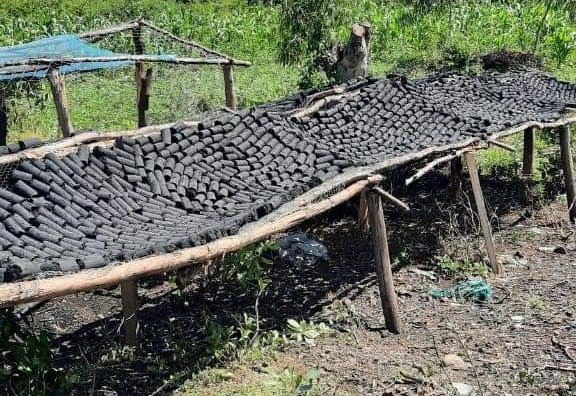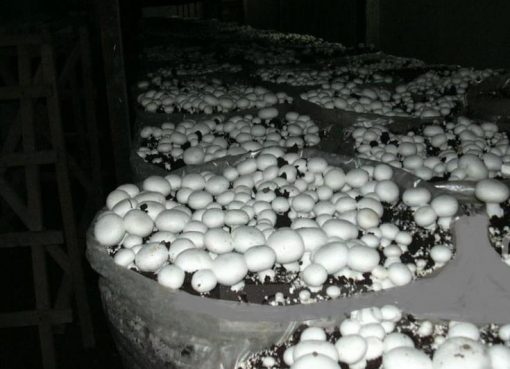The widespread use of wood-based charcoal and firewood for cooking among rural communities around the Lake Victoria region poses serious consequences for both the environment and public health.
As floods and drought are becoming more frequent and intense, affecting livelihoods, local communities are being encouraged to transition to clean energy sources as a proactive measure to combat climate change, air pollution, and health risks.
Traditional cooking methods using inefficient stoves emits soot (black carbon) and other harmful pollutants into the atmosphere, contributing significantly to the deterioration of the environment.
According to the Clean Cooking Alliance (CCA), approximately 1 billion metric tonnes of carbon dioxide (CO2) equivalent is produced annually from burning wood fuels, accounting for about 2% of global CO2 emissions.
Globally, nearly 2.3 billion people still rely on kerosene, firewood and charcoal for cooking contributing significantly to environmental pollution. Household cooking, heating, and lighting are responsible for up to 25% of black carbon emissions, and in countries like Kenya, cooking alone contributes 60% to 80% of these emissions.
The health implications of using traditional cooking methods are severe, particularly for women and children. The CCA estimates that nearly half a million premature deaths occur annually in Africa due to household air pollution.
Transitioning to cleaner stoves and fuels could reduce energy consumption by 30% to 60%, thereby lowering climate-harming emissions.
To address this, Nyalore Impact Enterprise, based in Homa Bay County, is providing clean energy solutions like the electric pressure cooker (Quooker Digi) and modern biomass stoves.
These innovations are helping reduce deforestation and carbon emissions in the Lake Victoria region.
Since its establishment in 2016, Nyalore Imapct has been at the forefront of advocating for clean cooking solutions for rural populations, aligning with Kenya’s ambitious targets of generating 100% of its electricity from clean energy sources by 2030 and achieving 100% clean cooking by 2028.
Benter Akinyi, a 37-year-old resident of Abouro village in Ndhiwa, Homa Bay County, has experienced significant improvements in her life since adopting the Quooker Digi appliance in 2021.
Previously, Akinyi relied on charcoal and firewood, which not only endangered her family’s health but also contributed to environmental degradation.
“My kitchen walls were covered in soot, and the smoke from burning firewood caused constant coughing and chest pain for my family,” Akinyi recalled.
Since switching to the cleaner cooking option, Akinyi’s family well-being has improved while also significantly reducing household energy costs.
Initially, she used to spend about Sh.7,400 weekly on charcoal. Now, with the energy-efficient cooker, she saves up to 70% of that amount, freeing up funds for other family needs.
Similarly, Mary Ouma, a 43-year-old mother of five from Thuon Gweno Village, Ndhiwa, Homa Bay County, discarded the traditional three stones fireplace in 2018 for biomass cook stove that uses charcoal briquettes and pellets.
The high cost of traditional fuels and health concerns drove her family to seek alternatives, with charcoal briquettes proving to be a cost-effective and clean energy source.
“We buy the briquettes from Nyalore Impact distributors, and they’re very affordable,” Ouma explained. A traditional meal of maize and beans for a household of five now costs about Sh.13 using briquettes, which is nine times cheaper when cooking the same meal using wood charcoal or kerosene costing Sh85 and Sh125 respectively.
Dorothy Otieno, founder and CEO of Nyalore Impact, shared that they have sold over 500 units of electric pressure cookers and 5,000 units of biomass cookstoves to underprivileged communities, reducing carbon emissions by over 1,000 tons annually.
Currently, the cookstoves are available for retail at a cost ranging between Sh2500 to Sh.11,000. However, to make the appliances affordable Nyalore Impact is offering installment payment choices to enable low-income households and small businesses overcome the upfront cost barrier.
“We target majorly households in Kenya’s rural and peri-urban areas and also the small businesses, which many ordinary Kenyans depend on as their main economic activity. So to make it more affordable, we introduced a pay-go model where locals can pay a deposit and the remaining balance can be paid over a period of time as they continue using the product,” Otieno says.
She reports that households have saved by about 50% on the cost of fuel they currently use in cooking after shifting to biomass cook stoves.
Environment experts emphasize the importance of transitioning to cleaner cooking methods to address both environmental and health challenges. Kenya continues to lose vast areas of forest due to the production of wood fuel, exacerbating climate impacts like floods, air pollution, and droughts.
Clean cooking solutions are a key part of Kenya’s Energy Transition and Investment Plan (2023-2050), which aims to phase out traditional cooking methods and promote efficient stoves and appliances to all rural inhabitants by 2030.
Dr. Fatih Birol, Executive Director of the International Energy Agency (IEA), underscored the urgency of these efforts at the IEA’s 9th Annual Global Conference on Energy Efficiency in Nairobi.
Dr. Birol urged world policymakers and governments to hasten adoption of energy-efficient policies as enshrined in the new IEA 2024 Energy Efficiency Policy Toolkit. This policy seeks to double energy efficiency progress globally by 2030.
“Despite the ambition demonstrated at COP28, and good progress in many countries and regions, we are not yet seeing the necessary progress on energy efficiency globally. Governments must speed up action, and the private sector must also play its part. We have seen strong progress, including from countries like Kenya,” Dr Birol said.
To augment these efforts, the African Development Bank group (AFDB) committed to channel over Sh.258 billion (USD 2 billion) for advancing clean cooking solutions in the continent over the next decade.
The AFDB President of Dr. Akinwumi Adesina speaking during the International Energy Agency’s Summit on Clean Cooking in Africa held in Paris, France in May 2024, said they will create a dedicated Africa Clean Cooking Programme through the Bank’s Sustainable Energy Fund for Africa (SEFA) to provide blended finance for clean cooking projects.
The substantial support signifies the importance of clean cooking and its potential in addressing pressing challenges like environmental sustainability.
By Robert Ojwang’





